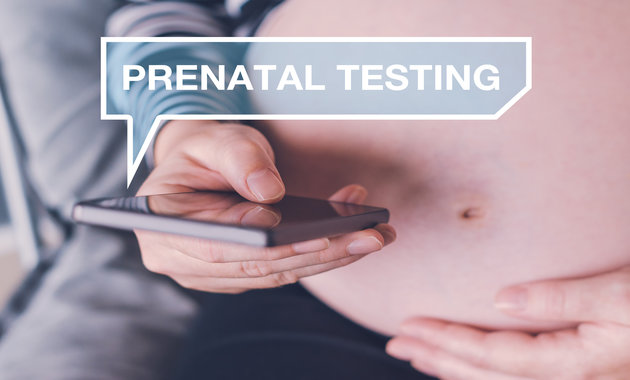
Pregnancy is a wonderful phase of a woman’s life. It’s a time when you can pamper yourself silly, enjoy all the attention you get and excitedly prepare for the arrival of your baby. But one thing you must not forget amidst your eagerness and elation is the need for periodic prenatal tests. According to the World Health Organization (WHO), around 830 women die every day because of issues related to childbirth or pregnancy[1]. However with simple antenatal care and support, these probable health threats can be determined and prevented.
So to help you go through a smooth sailing pregnancy and healthy delivery, here is a list of few medical tests that are a must during pregnancy to be on the safer side.
1. Prenatal tests
Some of the basic and essential tests conducted during pregnancy check you for the following:
-Blood type, Rh factor and antibodies
-Sexually transmitted diseases
-Anaemia
-Rubella immunity
-Preeclampsia
Book a blood test from the comfort of your home. Book Now
2. Diabetes or glucose tolerance test
Usually conducted in 24 to 28 weeks of pregnancy, glucose challenge and glucose tolerance tests are conducted to check if the pregnant women have healthy levels of glucose in her blood. This can help in the diagnosis of gestational diabetes (diabetes during pregnancy) and thus, start with the treatment to keep the glucose levels in control during pregnancy.
3. Group B strep culture
Carried out between the 35th to 37th week, the Group B Streptococcus test is one of the most important medical tests that need to be carried out before childbirth. The GBS bacteria are found in the lower genital tract of about 25% of women. These bacteria may not pose many problems otherwise but can cause serious illness in a pregnant woman and life-threatening infections in newborns, such as pneumonia and meningitis. If the mother is administered antibiotic treatment after a positive GBS test, the baby is 20 times less likely to contract the infection.
4. Hepatitis B and C screening
Hepatitis B and C infections are caused by a hepatitis B virus (HBV) and hepatitis C virus (HCV) which can be spread through close contact or through blood. As the virus can spread from mother to baby during pregnancy (fetal transmission), getting screened for hepatitis B and C prior to planning your pregnancy can help in knowing the risk of the infection (if any) and getting treated on time.
5. HIV test
HIV testing is the only way to know the HIV status of a person meaning whether a person is HIV positive or negative. HIV screening is important before planning the pregnancy because the chances of transmission of HIV from a mother to her newborn is generally high. If tested positive, you need to consult a doctor for starting the treatment as this can help lower the risk of mother-to-child transmission of HIV.
**Consult India’s best doctors here***
6. Pap smear
Pap smear is done to test for cervical cancer in women. Pap test can help a doctor to find cancerous cells or precancerous cells (cells that can turn into cancer). If the diagnosis is confirmed, it can help in the early treatment of cancer. It’s usually done early in the pregnancy so that if any abnormality is found, the best treatment can be determined.
7. Ultrasound
Ultrasounds are performed throughout the pregnancy for various reasons. It is essential to get such medical tests done regularly, to keep a check on the health of both mother and baby. The purposes of an ultrasound during different stages of the gestation period are:
First trimester
– To establish the dates of a pregnancy
– To detect an ectopic pregnancy or miscarriage
– To look for fetal abnormalities
Mid-trimester
– To check the amount of amniotic fluid
– To keep a track on fetal growth
Third trimester
– To determine the position of a fetus
– To check the placenta
8. Genetic screening
If you and/or your partner have a genetic disorder or you’ve had a baby before with a genetic abnormality, you may want to go for genetic testing. When done before or during pregnancy, it helps you to find out if either of the parents are a carrier of any genetic disorder like thalassemia, fragile X syndrome etc. This can in turn help in knowing your chances of having a child with a genetic disorder during the early stages of pregnancy.
9. Amniocentesis
Performed within the 15th and 20th weeks of pregnancy, amniocentesis involves collecting a sample of the amniotic fluid that surrounds the fetus. It is done to check for chromosomal disorders and open neural tube defects, such as spina bifida.
10. AFP and multiple marker screening tests
Undertaken usually between weeks 16 and 18, the maternal serum alpha-fetoprotein or AFP test and the multiple marker screening tests are used to find out the risk of a baby having neural tube defects and chromosomal disorders such as Down syndrome. The multiple marker test is said to offer more comprehensive results.
Being well aware and properly prepared before planning to get pregnant can help you enjoy this phase of your life without feeling stressed out or compromising on your and your baby’s health. Stay healthy and stay happy!
(The article is reviewed by Dr. Swati Mishra, Medical Editor)
References:
1. Maternal mortality [Internet]. World Health Organization. 2018 [cited 4 August 2018]. Available from: http://www.who.int/en/news-room/fact-sheets/detail/maternal-mortality